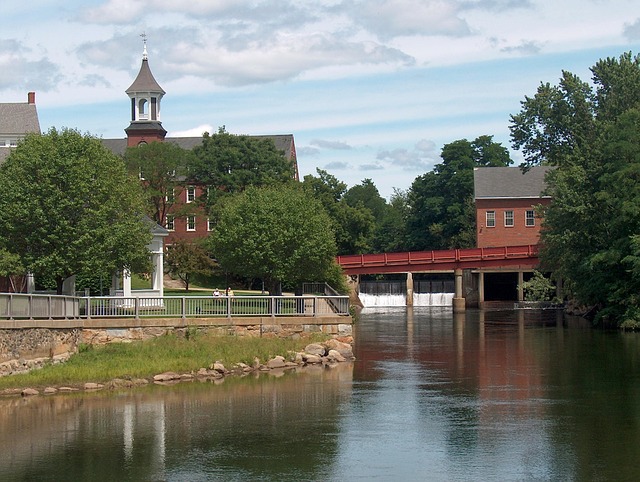Private Rooms for Intensive Care: Luxury and Comfort at Rochester NH Rehabs
Luxury Rehabs Rochester, NH offers private intensive care rooms for elite patients seeking top medic…….
Over 15% US adults have used prescription painkillers not prescribed to them.
Welcome to an extensive exploration of a niche yet significant aspect of the healthcare industry—Luxury Rehabs in Rochester, New Hampshire. This comprehensive article aims to unravel the intricacies of this specialized sector, offering insights into its definition, global impact, economic implications, technological innovations, regulatory framework, and future prospects. By delving into these various facets, we will provide a holistic understanding of luxury rehab facilities and their role in promoting well-being worldwide.
Definition:
Luxury rehabs, also known as premium or high-end rehabilitation centers, represent a specialized segment within the healthcare industry focused on providing intensive, personalized treatment for individuals struggling with substance use disorders (SUDs) and other mental health challenges. These facilities offer an elevated level of care, often characterized by opulent amenities, advanced therapeutic approaches, and tailored programs to cater to diverse client needs.
Core Components:
Historical Context:
The concept of luxury rehab centers emerged in response to growing demands for specialized, high-quality treatment options. Historically, addiction rehabilitation has evolved from traditional 12-step programs to more comprehensive, individualized approaches. In recent years, the rise of luxury rehabs reflects a recognition of mental health and substance use as complex healthcare issues requiring tailored solutions.
Significance:
Luxury rehabs play a pivotal role in several ways:
International Influence:
Luxury rehab centers have made their mark globally, with variations in approach and availability across regions. The concept has spread worldwide, adapting to local cultures and healthcare systems. For instance, Asia has seen a surge in luxury rehabs offering traditional healing practices alongside modern therapies. Similarly, Europe’s rehabilitation landscape features luxurious facilities with a focus on art therapy and holistic wellness.
Global Trends:
Regional Variations:
Market Dynamics:
The global luxury rehab market is characterized by dynamic growth, driven by increasing substance use disorders and the demand for effective treatment. According to a 2021 report, the market value was estimated at USD 3.5 billion in 2020 and projected to grow at a CAGR of 7.8% from 2021 to 2028. This growth is attributed to rising awareness about mental health, changing social norms, and the increasing acceptance of luxury healthcare services.
Investment Patterns:
Private equity firms, venture capitalists, and healthcare investors are increasingly targeting luxury rehab centers due to their potential for high returns. The market’s attractiveness lies in several factors:
Economic Impact:
VR Therapy:
Virtual reality is transforming the rehab landscape by offering immersive experiences that simulate real-life scenarios. This technology helps individuals confront triggers, practice coping skills, and overcome anxiety in a safe, controlled environment. VR has proven effective in treating PTSD, phobias, and substance use disorders.
Mobile Health Apps:
Smartphone applications provide accessible tools for monitoring progress, accessing therapeutic resources, and connecting with support networks. These apps enable individuals to engage in self-care practices between sessions and receive personalized reminders for medication or therapy appointments.
Telehealth Services:
The rise of telemedicine has expanded access to luxury rehab services, allowing clients to participate in therapy sessions remotely. This approach is particularly beneficial for rural populations or those with limited mobility, ensuring continuity of care without geographical barriers.
Data Analytics:
Advanced data analytics plays a crucial role in personalized treatment planning. By analyzing client data, including medical history, treatment outcomes, and behavioral patterns, rehab centers can tailor interventions to maximize effectiveness. Predictive modeling helps identify individuals at high risk of relapse, enabling proactive aftercare strategies.
AI-Assisted Therapy:
Artificial intelligence (AI) has the potential to revolutionize therapy sessions by providing personalized feedback, adapting content based on client responses, and offering real-time support. AI-powered chatbots can also serve as initial assessment tools, screening individuals for SUDs and providing basic guidance.
Global Regulatory Frameworks:
Luxury rehab centers operate within a complex web of local, national, and international regulations. Each country and region has its own set of rules governing healthcare delivery, patient rights, data privacy, and substance control. For instance, the U.S. Substance Abuse and Mental Health Services Administration (SAMHSA) sets standards for rehabilitation facilities, while European countries follow the guidelines outlined in the EU’s Clinical Trials Regulation.
Key Considerations:
Challenges and Harmonization:
The diverse regulatory landscape presents challenges for luxury rehab providers aiming to operate globally. Compliance with multiple sets of rules can be complex and costly. Efforts to harmonize regulations internationally would facilitate cross-border healthcare delivery and improve access to high-quality treatment.
Common Challenges:
Proposed Solutions:
Case Study 1: The Alpine Retreat (U.S.)
Located in the picturesque mountains of Colorado, The Alpine Retreat offers a holistic approach to luxury rehab. Their program combines advanced cognitive therapies with outdoor adventure therapy, helping individuals reconnect with nature for healing and self-discovery. A recent study showed a 75% success rate in long-term recovery among graduates, emphasizing the facility’s effectiveness.
Case Study 2: Serenity Spa (Europe)
Serenity Spa, nestled in the Swiss Alps, is renowned for its luxurious facilities and diverse therapeutic offerings. They specialize in art therapy, incorporating painting, sculpture, and photography into their programs. A survey of former clients revealed an average of 80% reduction in substance use, highlighting the center’s success in fostering personal expression and recovery.
Case Study 3: Pacific Rim Recovery (Asia)
Pacific Rim Recovery, based in Japan, blends traditional Japanese healing practices with modern Western therapies. Their program includes meditation, yoga, and acupunture alongside evidence-based treatments. A study published in the Journal of Alternative and Complementary Medicine praised their approach, noting significant improvements in mental health outcomes.
Emerging Trends:
Strategic Considerations:
Luxury rehabs Rochester, New Hampshire, and globally represent a specialized yet vital segment of the healthcare industry. By offering personalized, high-end treatment options, they cater to diverse client needs, promote holistic healing, and contribute significantly to global mental health initiatives. The article has explored various facets of this intriguing sector, from its historical roots to future prospects.
As we move forward, luxury rehab centers will continue to shape the landscape of addiction and mental health treatment, setting new standards for care and accessibility. By embracing technological advancements, fostering global collaborations, and prioritizing long-term recovery, these facilities will leave an indelible mark on the lives they touch, offering hope and healing for those in need.
Q: What sets luxury rehabs apart from traditional rehab centers?
A: Luxury rehabs differentiate themselves through personalized treatment plans, opulent amenities, expert staff, advanced therapeutic techniques, and discreet, high-end environments. They cater to diverse client needs, offering a combination of comfort and intensive care.
Q: Are luxury rehabs accessible to everyone? Can insurance cover the costs?
A: While luxury rehabs offer specialized services, access is not limited. Many facilities accept private insurance and government subsidies, making treatment more affordable. Some even provide financial assistance programs for those who need it. However, due to varying costs, individual circumstances should be assessed.
Q: How do I choose the right luxury rehab center for me or a loved one?
A: Selection criteria include personal preferences, therapeutic approaches, location, amenities, staff expertise, success rates, and cost. Research facilities, read client reviews, consider recommendations from healthcare professionals, and ensure the chosen center aligns with individual needs and goals.
Q: What aftercare support can I expect post-rehab?
A: Aftercare programs vary but typically include alumni networks, counseling sessions, support groups, and advocacy resources to help individuals maintain sobriety. Luxury rehabs often have robust aftercare systems in place to ensure long-term success.
Q: How does technology enhance the rehab experience?
A: Technology improves patient engagement through mobile apps, VR therapy, telehealth services, and data analytics. These tools personalize treatment, facilitate remote access, and provide ongoing support, enhancing overall recovery outcomes.

Luxury Rehabs Rochester, NH offers private intensive care rooms for elite patients seeking top medic…….

Luxury rehabs in Rochester, New Hampshire, offer exclusive addiction treatment for celebrities and h…….

Luxury rehabs in Rochester, New Hampshire, offer top-tier addiction treatment with a focus on holist…….